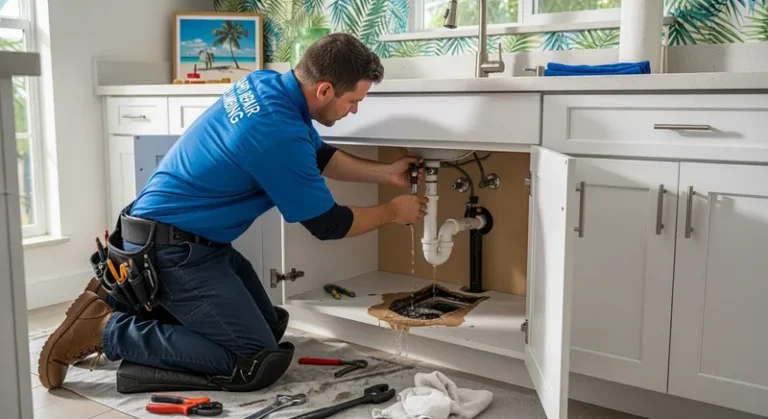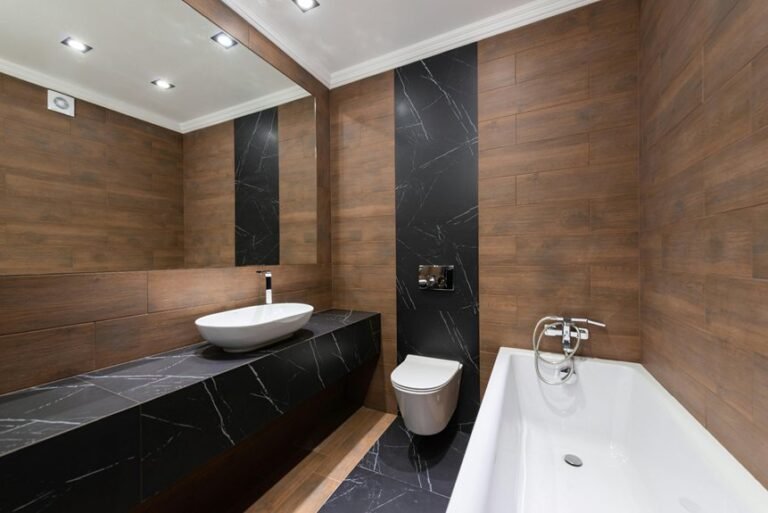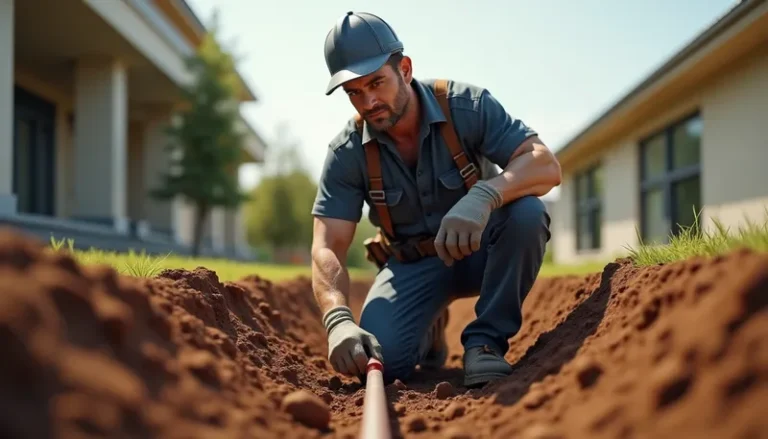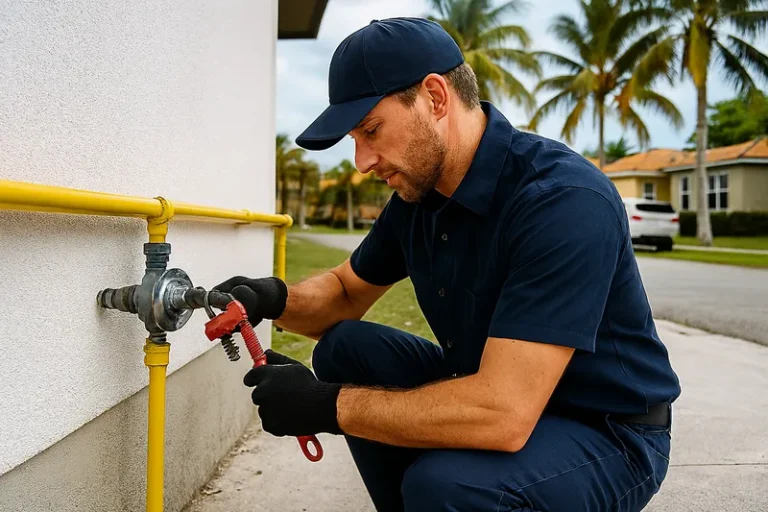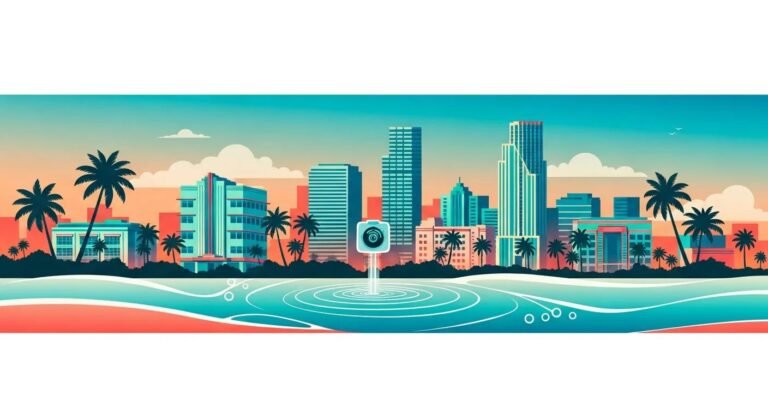How To Choose The Perfect Water Filtration System For You
Did you know that nearly 15 million households in the U.S. rely on private water sources, often exposing them to harmful contaminants? Installing a water filtration system is essential for ensuring safe drinking water in your home. Understanding the types of systems available and their installation process can greatly impact your health and well-being. Let’s explore how to choose the right filtration system tailored to your needs.
Key Takeaways for Effective Water Filtration Installation
- Assess your water quality to identify contaminants before selecting the appropriate filtration system for installation.
- Choose between various filtration types, such as reverse osmosis or activated carbon, based on your specific needs.
- Hire a professional plumber for installation to ensure proper setup and optimal system performance.
- Follow the manufacturer’s guidelines for maintenance and filter replacement to prolong the life of your water filtration system.
- Regularly test your water quality post-installation to ensure the filtration system effectively removes contaminants.

Understanding Water Contaminants
To guarantee the safety of your drinking water, it’s crucial to understand the various contaminants that can be present. Waterborne pathogens, including bacteria, viruses, and protozoa, pose significant health risks. They can enter your water supply through untreated sewage, agricultural runoff, or natural disasters. Recognizing these pathogens helps you take preventative measures.
Additionally, chemical pollutants—such as heavy metals, pesticides, and industrial chemicals—often infiltrate water sources through improper disposal or manufacturing processes. These contaminants can have long-term health effects, including chronic illnesses.
Regular testing of your water supply can identify these harmful substances, enabling you to make informed decisions about water treatment. Understanding these risks is the first step toward ensuring the safety of your drinking water.
Benefits of Water Filtration Systems
While many homeowners prioritize the taste and clarity of their drinking water, the benefits of installing a water filtration system extend far beyond aesthetics.
One significant advantage is the health benefits; filtered water can reduce exposure to harmful contaminants, such as lead and chlorine, promoting better overall health.
Additionally, investing in a filtration system can lead to fewer bottled water purchases, which helps decrease plastic waste and lessen your environmental impact.
By choosing to filter your water, you’re not only ensuring safer drinking water for your family but also contributing to a more sustainable future.
In short, water filtration systems offer essential health protections and support eco-friendly practices, making them a wise choice for conscientious homeowners.
Types of Water Filtration Systems
When considering water filtration systems, it’s essential to understand the various types available to meet your specific needs.
Reverse osmosis systems use a semi-permeable membrane to remove contaminants, including heavy metals and dissolved solids, ensuring clean, safe drinking water. They’re particularly effective for areas with high levels of impurities.
On the other hand, activated carbon filters work by adsorbing impurities onto the carbon surface, effectively eliminating chlorine, sediment, and volatile organic compounds. These filters can enhance taste and odor but may not remove all types of contaminants.
Whole-House vs. Point-of-Use Systems
Choosing between whole-house and point-of-use water filtration systems can considerably impact your water quality and overall convenience.
Understanding the benefits of each option is essential for informed decision-making.
Whole-house benefits include:
- Extensive filtration for all water sources in your home
- Increased convenience, as no additional installation is needed for individual faucets
- Cost-effectiveness over time, reducing the need for multiple systems
On the other hand, point-of-use advantages are:
- Targeted filtration for specific faucets or appliances
- More affordable initial installation costs
- Greater flexibility to upgrade or change systems as needed
Choosing the Right Filtration System for Your Home
How can you determine the best water filtration system for your home? Start with a thorough water quality assessment to identify contaminants. Different filtration system types cater to various needs, so understanding your specific requirements is essential. Additionally, hiring professional plumbers in miami dade county can provide valuable insights into the best options for your home.
| Contaminant | Recommended Filtration System Type | Benefits |
|---|---|---|
| Chlorine | Activated Carbon | Improves taste and odor |
| Heavy Metals | Reverse Osmosis | Removes lead and arsenic |
| Bacteria | UV Purification | Destroys harmful pathogens |
| Sediment | Sediment Filter | Protects plumbing and appliances |
| Hard Water | Water Softener | Reduces scale buildup |
Key Features to Look for in a Water Filter
Selecting the right water filter involves understanding several key features that can considerably impact its performance and efficiency.
You’ll want to focus on the following:
- Filter Efficiency: Check the filter’s ability to remove contaminants, including bacteria, chemicals, and heavy metals. Higher efficiency usually means better water quality.
- Installation Options: Consider whether you’ll need an under-sink system, countertop model, or whole-house filter. Your choice should match your space and plumbing setup.
- Maintenance Requirements: Look into how often the filter needs replacement and the ease of accessing the filter for maintenance.
Installation Process for Water Filtration Systems
Once you’ve chosen a water filtration system that meets your needs, the installation process becomes the next important step.
Start by gathering your installation tools, which typically include a wrench, screwdriver, and Teflon tape. Verify you have all necessary components from the manufacturer, including filters and connectors.
Next, review the plumbing requirements specific to your system. You’ll often need to connect the filter to your cold water line, so shut off the water supply before proceeding.
Install the filter according to the manufacturer’s instructions, paying close attention to the orientation and sealing connections to prevent leaks.
After everything’s securely in place, turn the water back on, check for leaks, and run water through the system to verify it’s operating correctly.
Maintenance and Care for Your Water Filter
To guarantee your water filter operates efficiently and lasts longer, regular maintenance is vital. Following a filter replacement schedule is important to guarantee peak performance. Depending on your system, you should replace filters every 6 to 12 months.
Additionally, implementing proper filter cleaning techniques can enhance its longevity. Here are some tips for maintaining your water filter:
- Regularly check for leaks or unusual noises.
- Clean the filter housing and components with mild soap and water.
- Test water quality periodically to detect any issues early.
Cost Considerations for Water Filtration Installation
When considering water filtration installation, it’s crucial to evaluate the overall costs involved, as they can vary considerably based on the type of system you choose and your specific needs.
Begin with budget planning; determine how much you’re willing to invest not just in the system but also in maintenance and potential repairs. Obtain installation quotes from multiple providers to guarantee you’re getting a fair price.
Remember, cheaper options may lead to increased long-term costs due to inefficiency or frequent replacements. Factor in any additional plumbing work that might be necessary for your installation. Additionally, hiring professional plumbers can ensure the installation is done correctly and safely.
The Impact of Clean Water on Health and Well-being
Access to clean water is essential for maintaining good health and overall well-being, as it directly influences bodily functions and disease prevention.
When you guarantee that your water supply is clean, you activate numerous hydration benefits, which include:
- Enhanced physical performance and energy levels
- Improved cognitive function and mood stability
- Effective detoxification and waste removal
Clean water greatly reduces the risk of waterborne diseases, which can lead to serious health issues.
By prioritizing water filtration, you not only hydrate your body but also protect yourself from harmful contaminants.
Investing in a reliable filtration system promotes long-term health, guaranteeing that you and your family can thrive in an environment where clean, safe water is a priority, ultimately enhancing your quality of life.
Conclusion
To summarize, investing in a water filtration system isn’t just a choice; it’s a necessity for your family’s health. With the right system, you’re not only ensuring clean, safe drinking water but also protecting against harmful contaminants lurking in your supply. So, why gamble with your well-being? Make the informed decision today—your body will thank you tomorrow. Prioritize water filtration installation, and transform how you experience hydration in your home.




